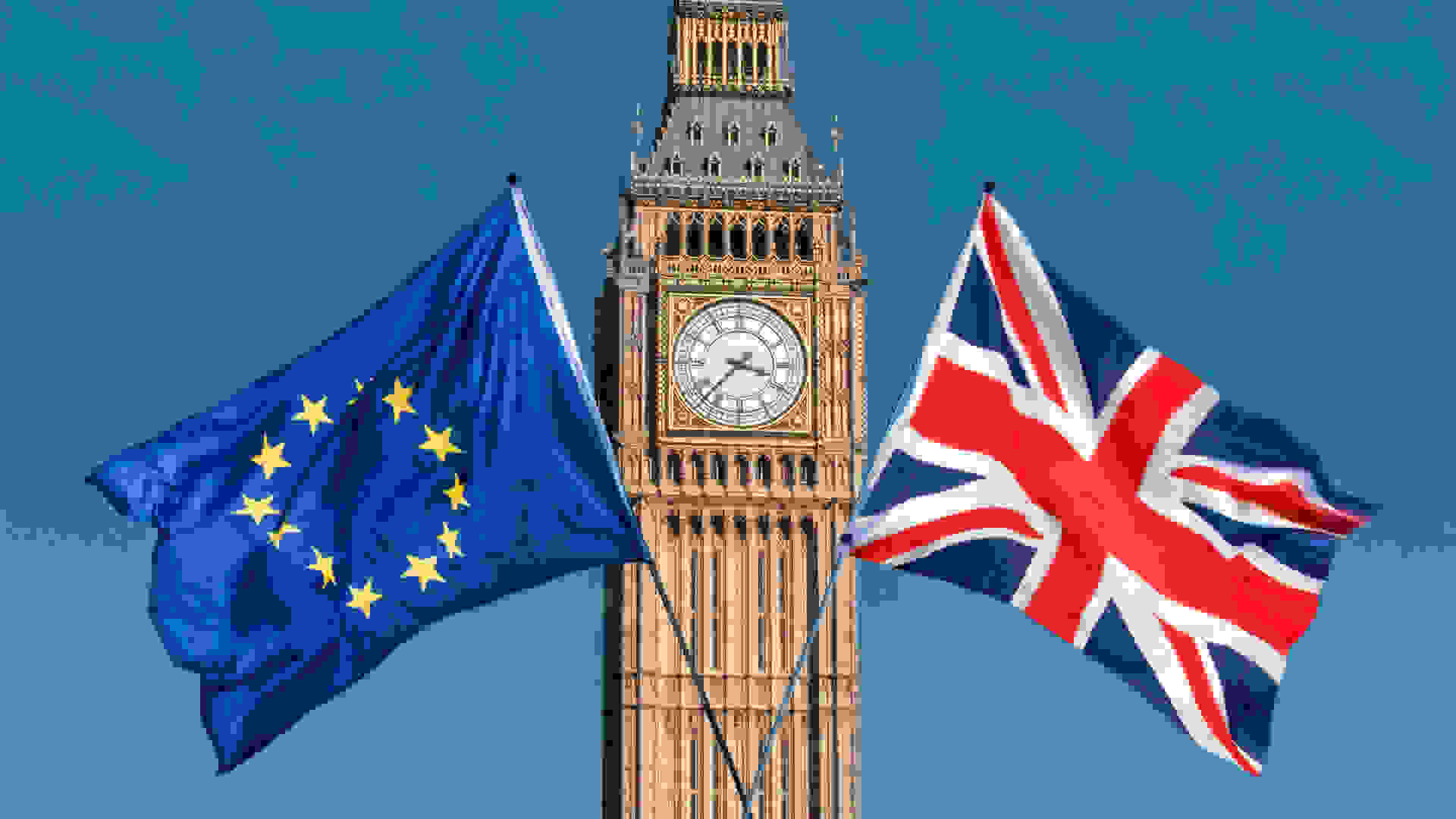A Parliamentary Scrutiny Solution For The EU (Withdrawal) Bill
Tue. 5 Sep 2017
The government has said the 'principal objective of leaving the EU is for Parliament to take back control of UK laws and policies'. The EU (Withdrawal) Bill is the first legislative test of this. Before the Bill's 7 September House of Commons second reading debate, we outline the proposals for it in our new report ‘Taking Back Control for Brexit and Beyond'.


, Director
Dr Ruth Fox
Dr Ruth Fox
Director , Hansard Society
Ruth is responsible for the strategic direction and performance of the Society and leads its research programme. She has appeared before more than a dozen parliamentary select committees and inquiries, and regularly contributes to a wide range of current affairs programmes on radio and television, commentating on parliamentary process and political reform.
In 2012 she served as adviser to the independent Commission on Political and Democratic Reform in Gibraltar, and in 2013 as an independent member of the Northern Ireland Assembly’s Committee Review Group. Prior to joining the Society in 2008, she was head of research and communications for a Labour MP and Minister and ran his general election campaigns in 2001 and 2005 in a key marginal constituency.
In 2004 she worked for Senator John Kerry’s presidential campaign in the battleground state of Florida. In 1999-2001 she worked as a Client Manager and historical adviser at the Public Record Office (now the National Archives), after being awarded a PhD in political history (on the electoral strategy and philosophy of the Liberal Party 1970-1983) from the University of Leeds, where she also taught Modern European History and Contemporary International Politics.
, Hansard Society
Joel Blackwell
Joel Blackwell
Senior Researcher, Hansard Society
Joel conducts the Society’s continued research into the legislative process, the effectiveness of Parliament in scrutinising and holding the executive to account and the public’s engagement with politics.
He is co-author of 'The Devil is in the Detail: Parliament and Delegated Legislation'. Prior to joining the Hansard Society in 2014, Joel was a Political Consultant for Dods Parliamentary Communications and has also worked at the Electoral Commission. He graduated from Bristol University in 2005 with a degree in Politics and Social Policy.
Get our latest research, insights and events delivered to your inbox
Share this and support our work
The challenge facing Parliament is the conjunction of the Bill’s wide delegated powers, including Henry VIII powers, with inadequate scrutiny procedures for the ways these powers might be exercised.
This combination will inhibit MPs' ability to hold the government to account and neuter their capacity to influence some of the policy choices arising from the UK’s withdrawal from the EU.
Delegated powers are powers that Parliament gives to ministers in Acts of Parliament to make law (in the form of delegated legislation or Statutory Instruments (SI)) without having to pass another Act. An SI is the 'child' of the power in the 'parent' Act and can be used to fill out, update, or even amend primary legislation. Delegated powers to amend or repeal primary legislation are known as Henry VIII powers.
In legislating for Brexit, the government faces a genuine challenge, owing to the tight deadline, the volume of legislation involved, and the need for speed and flexibility to cope with the outcome of the UK-EU negotiations. The use of delegated legislation, including the use of Henry VIII powers, is unavoidable.
But, as the EU (Withdrawal) Bill is drafted, the broad scope of its delegated powers, the inadequate constraints placed on them, and shortcomings in the proposed parliamentary control of the delegated legislation that will be made using them, constitute a toxic mix, for Parliament and the balance of power between executive and legislature. The balance must be redressed in Parliament’s favour by improving parliamentary scrutiny of both delegated powers and delegated legislation.
In a new report, 'Taking Back Control for Brexit and Beyond: Delegated Legislation, Parliamentary Scrutiny and the EU (Withdrawal) Bill', the Hansard Society proposes a three-part solution to the problem:
Reports / Taking Back Control for Brexit and Beyond: Delegated Legislation, Parliamentary Scrutiny and the European Union (Withdrawal) Bill
As drafted, the European Union (Withdrawal) Bill will strengthen the hand of the executive, not Parliament, because of its provisions for delegated powers and their scrutiny.
Previous legislation, such as the Legislative and Regulatory Reform Act 2006, provides examples of ways in which Parliament could introduce safeguards into the EU (Withdrawal) Bill to tighten the scope and application of the powers.
In previous bills which included powers of similar breadth and scope to those in the EU (Withdrawal) Bill, Parliament (particularly the House of Lords) has made the exercise of those powers subject to a strengthened scrutiny procedure (i.e. not the normal negative or affirmative procedure). The EU (Withdrawal) Bill proposes no such procedure.
However, the House of Lords is likely to insist on the use of strengthened scrutiny for the widest powers in the Bill, if MPs do not do so first.
For reasons the report sets out, none of the existing strengthened scrutiny procedures will meet the Brexit need for legislative speed and flexibility, if the government is to deliver a functioning statute book the day after we leave the EU.
The Hansard Society has therefore designed a new strengthened scrutiny procedure - the EU (Withdrawal) Order procedure - for use in this and other Brexit bills. The key feature of the procedure is that Parliament, not the government, will decide how the exercise of the broadest powers in the Bill will be scrutinised.
Concerns over parliamentary scrutiny of delegated legislation under the EU (Withdrawal) Bill arise partly because the way in which Parliament, particularly the House of Commons, deals with delegated legislation is wholly inadequate, and has long and widely been recognised as such. The Hansard Society concluded in 2014 that the system was unfit for purpose and in need of wholesale reform, after it undertook the first in-depth study of the subject in over 80 years.
But successive governments have made no effort seriously to engage with the problem, and the House of Commons, unlike the House of Lords, has not fundamentally altered its handling of delegated legislation in years.
The Hansard Society proposes that a new Delegated Legislation Scrutiny Committee should be established in the House of Commons for the scrutiny of all delegated legislation, including that made under the EU (Withdrawal) Bill and other Brexit bills.
The new system would:
be in the control of MPs not whips, with the chair and members elected in the same way as other select committees;
be supported by a set of thematic sub-committees, some of whose members would also be members of relevant departmental select committees – thereby building links to Members with relevant policy knowledge and expertise;
have administrative, legal and research support via a committee secretariat;
sift and scrutinise both negative and affirmative SIs and those subject to strengthened scrutiny procedures; and
turn over to the whole House for further consideration those SIs of concern, with procedures in place to ensure that any SI reported to the House would have to be debated and voted on. Members would be granted a 'conditional amendment' power, alongside procedural hurdles designed to ensure that Ministers cannot ignore MPs' concerns.
abolish the current, discredited, scrutiny system for negative and affirmative SIs, which gives MPs no meaningful voice and wastes their time.
Better scrutiny should be a permanent feature of parliamentary life, not just for Brexit. The political salience of Brexit-related legislation, and the 'take back control' rhetoric surrounding it, now finally and fatally expose the shortcomings of the Commons’ current delegated legislation scrutiny system. MPs can no longer be indifferent to these inadequacies, and must finally take seriously their democratic responsibility for delegated legislation.
If the political will exists, the Hansard Society’s proposed new system could be in place for Spring 2018, ready for the emergence of the first SIs under the EU (Withdrawal) Bill after it receives Royal Assent.
Given the government's promise about Parliament 'taking back control', the way in which Parliament manages this legislative process will be among the criteria for judging whether a success has been made of Brexit. Get it wrong, and Parliament and the political class could again incur untold reputational damage. Parliamentary accountability for the Brexit process must be secured, and doing so should be a matter of interest to 'leavers' and 'remainers' alike. Given the length of time it has been known that the House of Commons procedures for scrutiny of delegated powers and delegated legislation are deeply flawed, if Brexit is not the time to put things right, when will be?
Blackwell, J. & Fox, R. (2017) A Parliamentary Scrutiny Solution For The EU (Withdrawal) Bill (Hansard Society: London)
More
Related
Articles / In the rush to prepare for Brexit, parliamentary scrutiny will suffer
The cancellation of this week's House of Commons recess provided the government with an extra few days to hold debates on affirmative Brexit SIs. But the low number of debates makes it a wasted opportunity. The government can get its Brexit SIs into force by 29 March, but probably only at the expense of what limited scrutiny already takes place for SIs.
Blog / Debating 'meaningful votes'
Most analysis of the 'meaningful vote' has been from a purely Brexit perspective. But the arguments involved have broader, constitutional, significance, and concern Parliament’s role in the making of international agreements. MPs need to think about the powers they want, at what point in the process, and with what time and information at their disposal.
Blog / Fitting a transition / implementation period into the process of legislating for Brexit
The prospective post-Brexit implementation / transition period will require amendments to the European Union (Withdrawal) Bill. Some can be made by the promised Withdrawal Agreement and Implementation Bill, but some could be made before the EU (Withdrawal) Bill is passed. This blogpost by Swee Leng Harris summarises her new briefing paper.
Blog / Trade Bill highlights Parliament's weak international treaty role
The Trade Bill raises concerns about delegated powers that also apply to the EU (Withdrawal) Bill, and need to be tackled in a way that is consistent with it. The Trade Bill also highlights flaws in Parliament's role in international agreements. In trade policy, Brexit means UK parliamentarians could have less control than now, whereas they should have more.
Blog / 'Bonfire of the quangos' legislation fizzles out
The forthcoming Great Repeal Bill will be the most prominent piece of enabling legislation since the controversial Public Bodies Act 2011.
Blog / "You can look, but don't touch!" Making the legislative process more accessible
Can technology help change the culture and practice of parliamentary politics, particularly around the legislative process?
Events / Future Parliament: Hacking the Legislative Process // Capacity, Scrutiny, Engagement
From finance to healthcare, technology has transformed the way we live, work and play, with innovative solutions to some of the world’s biggest challenges. Can it also have a role in how we make our laws?
Blog / Test page 004
At vero eos et accusamus et iusto odio dignissimos ducimus qui blanditiis praesentium voluptatum deleniti atque corrupti quos dolores et quas molestias excepturi sint occaecati cupiditate non provident, similique sunt in culpa qui officia deserunt mollitia animi, id est laborum et dolrum.
Blog / Test page 002 (v001)
At vero eos et accusamus et iusto odio dignissimos ducimus qui blanditiis praesentium voluptatum deleniti atque corrupti quos dolores et quas molestias excepturi sint occaecati cupiditate non provident, similique sunt in culpa qui officia deserunt mollitia animi, id est laborum et dolrum.
Blog / Test page 04
At vero eos et accusamus et iusto odio dignissimos ducimus qui blanditiis praesentium voluptatum deleniti atque corrupti quos dolores et quas molestias excepturi sint occaecati cupiditate non provident, similique sunt in culpa qui officia deserunt mollitia animi, id est laborum et dolrum.
Latest
Guides / Financial Scrutiny: the Budget
In order to raise income, the government needs to obtain approval from Parliament for its taxation plans. The Budget process is the means by which the House of Commons considers the government’s plans to impose 'charges on the people' and its assessment of the wider state of the economy.
Guides / Financial Scrutiny: the Estimates Cycle
In order to incur expenditure the government needs to obtain approval from Parliament for its departmental spending plans. The annual Estimates cycle is the means by which the House of Commons controls the government’s plans for the spending of money raised through taxation.
Data / Coronavirus Statutory Instruments Dashboard
The national effort to tackle the Coronavirus health emergency has resulted in UK ministers being granted some of the broadest legislative powers ever seen in peacetime. This Dashboard highlights key facts and figures about the Statutory Instruments (SIs) being produced using these powers in the Coronavirus Act 2020 and other Acts of Parliament.
Briefings / The Economic Crime (Transparency and Enforcement) Bill: four delegated powers that should be amended to improve future accountability to Parliament
The Bill seeks to crack down on ‘dirty money’ and corrupt elites in the UK and is being expedited through Parliament following Russia’s invasion of Ukraine. This briefing identifies four delegated powers in the Bill that should be amended to ensure future accountability to Parliament.
Articles / Brexit and Beyond: Delegated Legislation
The end of the transition period is likely to expose even more fully the scope of the policy-making that the government can carry out via Statutory Instruments, as it uses its new powers to develop post-Brexit law. However, there are few signs yet of a wish to reform delegated legislation scrutiny, on the part of government or the necessary coalition of MPs.